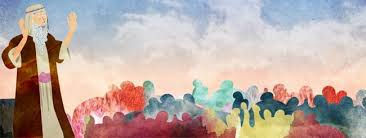D'var Torah for פָּרָשַׁת הַאֲזִינוּ / Parashat Ha’azinu 5786 4 October 2025 / 12 Tishrei 5786
- Rabbi Stephen Epstein

- Sep 24
- 3 min read
Parashat Ha’azinu 5786 / פָּרָשַׁת הַאֲזִינוּ
4 October 2025 / 12 Tishrei 5786

Parashat Ha’azinu is the 53rd weekly Torah portion in the annual Jewish cycle of Torah reading.
Torah Portion: Deuteronomy 32:1-32:52
In Ha’azinu (“Listen”) , Moses recites a poem praising God and criticizing the sins of the Israelites. He describes the misfortunes that the Israelites will face and the damage God will ultimately wreak on their oppressors. The portion ends as God commands Moses to ascend Mount Nebo, where he is to die. [1]
Full Kriyah
Haftarah: II Samuel 22:1-51 · 51 p’sukim
Triennial year 1 Ha’azinu is read in its entirety in 5786. See Full Kriyah.
Commentary and Divrei Torah Sefaria OU Torah Rabbi Sacks z”l Jewish Theological Seminary
Moses lays out the rewards and punishments for Israel observing the commandments or ignoring them.
He does this in this song. Now the concept of “song” is a little different than what we, today, consider a song. In Torah, a song is more like a poem.
Why a “song”? Hasn’t Moses said enough about what Israel needs to do and what tragedies await them if–or when, really–they don’t? It seems that Moses needs to belabor the point.
We have seen our people at their best and at their worst. We know that when Israel steps up and does the right thing, our people thrive and we enjoy prosperity and success. When we don’t, we have seen how tragedy befalls us.
Moses knows who we are and needs to really hone in the point. He sees how we take G-d’s blessings for granted and forsake Torah. Like children, we need to be reminded again and again. Let us consider this as we approach the new year. Let us re-dedicate ourselves to our heritage and Torah. Let us embrace “Teshuva”, returning to our heritage. Let us make that commitment that this year we will resolve to live our Torah, G-d’s teaching.
Parashat Haazinu 5786 / פָּרָשַׁת הַאֲזִינוּ
4 de octubre de 2025 / 12 de Tishrei de 5786
Parashat Haazinu es la quincuagésima tercera porción semanal de la Torá, en el ciclo anual judío de lectura de la Torá.
Parashat Haazinu: Deuteronomio 32:1-32:52
En Haazinu (“Escucha”), Moisés recita un poema alabando a Dios y criticando los pecados de los israelitas. Describe las desgracias que enfrentarán los israelitas y el daño que Dios finalmente infligirá a sus opresores. La porción termina con la orden de Dios a Moisés de ascender al Monte Nebo, donde morirá. [1]
Kriyah completa
1: 32:1-6 · 6 p’sukim
2: 32:7-12 · 6 p’sukim
3: 32:13-18 · 6 p’sukim
4: 32:19-28 · 10 p’sukim
5: 32:29-39 · 11 p’sukim
6: 32:40-43 · 4 p’sukim
7: 32:44-52 · 9 p’sukim
maf: 32:48-52 · 5 p’sukim
Haftará: 2 Samuel 22:1-51 · 51 p’sukim
El año trienal 1 Ha’azinu se lee íntegramente en 5786. Véase Kriyah completa.
Comentario y Divrei Torá Sefaria OU Torá Rabino Sacks z”l Seminario Teológico Judío
Moisés establece las recompensas y los castigos para Israel, ya sea que observe los mandamientos o los ignore.
Lo hace en este cántico. Ahora bien, el concepto de "cántico" es un poco diferente de lo que hoy consideramos un cántico. En la Torá, un cántico es más como un poema.
¿Por qué un "cántico"? ¿Acaso Moisés no ha dicho suficiente sobre lo que Israel debe hacer y las tragedias que les aguardan si no lo hacen, o cuándo, en realidad? Parece que Moisés necesita insistir en el tema.
Hemos visto a nuestro pueblo en sus mejores y peores momentos. Sabemos que cuando Israel da un paso al frente y hace lo correcto, nuestro pueblo prospera y nosotros disfrutamos de prosperidad y éxito. Cuando no lo hacemos, hemos visto cómo nos azota la tragedia.
Moisés sabe quiénes somos y necesita ser muy preciso. Él ve cómo tomamos las bendiciones de Dios por... Conceder y abandonar la Torá. Como niños, necesitamos que se nos recuerde una y otra vez. Consideremos esto al acercarnos al nuevo año. Renovemos nuestra dedicación a nuestra herencia y a la Torá. Abracemos la "Teshuvá", retomando nuestra herencia. Comprometámonos a vivir este año la Torá, la enseñanza de Dios.












Comments